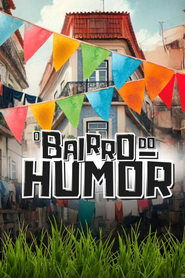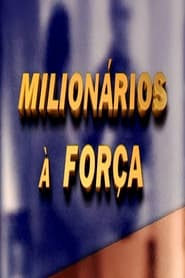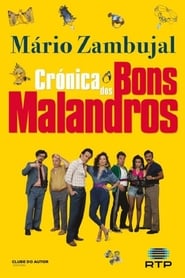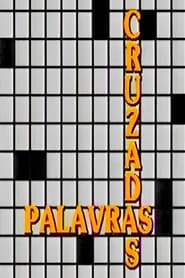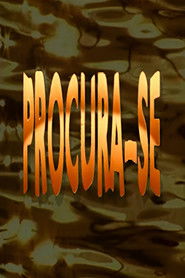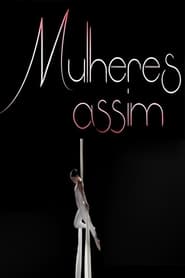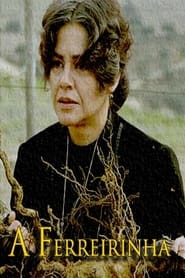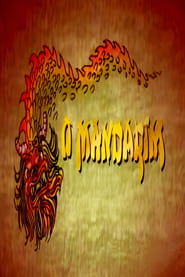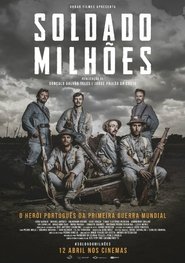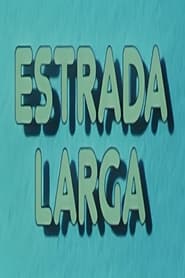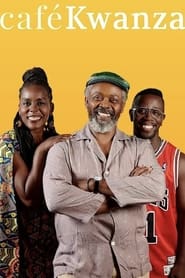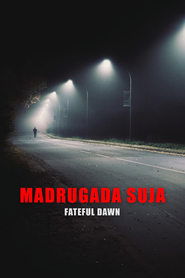Rtp1 TV Series - Page 11
-
O Bairro do Humor
2025
O Bairro do Humor
2025
-
Sem Fazer Planos Do Que Virá Depois
2017
In May 2017, "Amar Pelos Dois", in the voice of Salvador Sobral, gave Portugal its first victory at the Eurovision Song Contest. It was the opposite of the song "festivaleira" but, in the voice of a charismatic and different interpreter between the different ones, the composition of Luísa Sobral made history. -
Milionários à Força
2001
Milionários à Força
2001
-
Palavras Cruzadas
1987
Palavras Cruzadas
1987
-
Cobardias
1988
Cobardias
1988
-
Da Mood
2022
Da Mood
2022
-
Lume
0000
Lume
0000
-
Mulheres Assim
2016
Mulheres Assim
2016
-
A Ferreirinha
2004
star 5.5The life of Antonia Ferreira (popularly known as "Ferreirinha") from her widowhood to her death, including her role in the production and marketing of the Port wine.At the same time it's told the love story between Camilo Castelo Branco and Ana Plácido. -
The Cowboy
2024
The Cowboy
2024
Early 80’s. A group of criminal’s spreads terror across the Algarve with more than 20 bank robberies. The gang is led by a man they call "The Doctor" and a carpenter who earns the nickname of "The Cowboy". Captured and sentenced to 18 years in prison he becomes the protagonist of the bloodiest escape in Portuguese prison history. -
Marina, Marina
1992
Marina, Marina
1992
-
Caixa Alta
1989
Caixa Alta
1989
-
O Mandarim
1991
O Mandarim
1991
-
Jogo de Todos os Jogos
2019
The Portuguese version of "Ellen's Game of Games": the biggest, most dynamic and fun contest on television. -
Soldado Milhões
2018
Soldado Milhões
2018
Aníbal Augusto Milhais The most important desire to live in peace was persecuted by the name of Portugal. The story comes from the memories of war, those stirred up during a hunt. In this quest, Millions carrying out their struggle for survival 20 years before in World War I free. At dawn on April 9, 1918, dozens of German divisions burst through the sector defended by the second division of the Portuguese Expedited Corps (CEP). In a few hours, in what would be known as the Battle of La Lys, more than 7,500 men were lost. Milhais refuses the orders of Captain and is alone, before a regiment of German soldiers, to save its affiliations. Milhais faces his biggest challenge. He is the only one of his friends. -
Estrada Larga
1987
Estrada Larga
1987
-
Café Kwanza
2022
Café Kwanza
2022
-
Fateful Dawn
0000
Fateful Dawn
0000
Filipe, a municipal architect known for his idealism and commitment to environmental causes, is the only person who can stop the construction of a luxury real estate development in a protected area. Maria Rodrigues, a young prosecutor, is pursuing a lead in a high-level financial corruption case. At the same time, the reopening of a closed case, in which she was the victim, forces her to confront the deep and painful trauma of a night that took place 15 years before. As she takes the investigation into her own hands, she struggles with the hazy memories of the rape and hit-and-run. Filipe is one of the main suspects, but was it really him?
